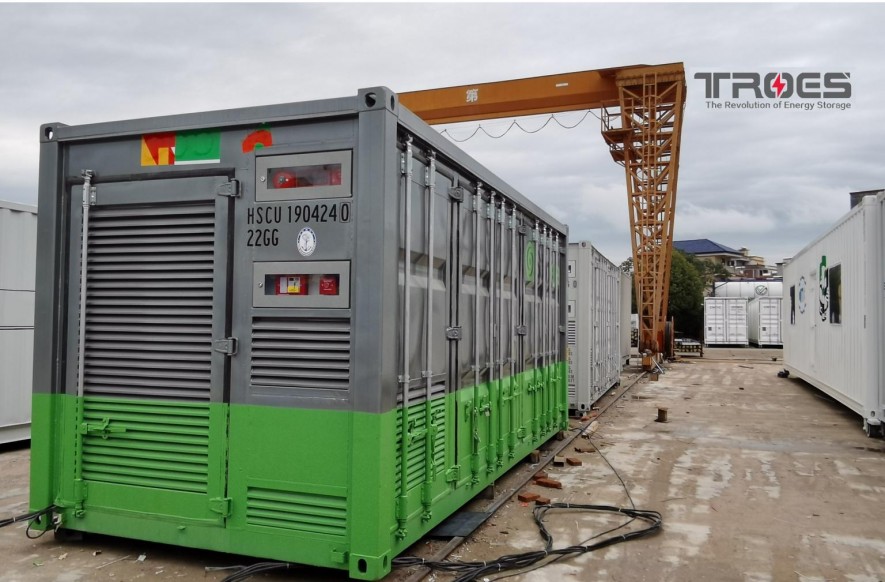Sustainable Energy Future in New Brunswick
Nata Kesuma
Kamis, 13 April 2023 - 19:10 WIB

Thepresidentpost.id - Energy storage systems are often implemented in areas with high electricity rates, unstable power supply, significant time differences in utility rates, surplus solar energy production, or a dependence on diesel power.
Despite New Brunswick having some of the lowest electricity rates in Atlantic Canada and no peak pricing or high time-of-use prices, the Province is preparing for the future by implementing Battery Energy Storage Systems (BESS). With the adoption of electric vehicles and electrification from other industries, the demand for electricity is expected to increase.
To address this challenge, BESS is seen as a future-proofing strategy to ensure that the Province has a reliable energy supply. Additionally, NB Power is exploring innovative solutions to tackle potential peak demand challenges caused by winter routines that create system peaks, such as those arising from daily routines during the wintertime that create system peaks between 6 to 9 a.m. and 4 to 8 p.m., as well as aging infrastructure issues, while also aiming to decarbonize the grid.
New Brunswick has taken steps to prepare for future electrification through several initiatives and investments.
Firstly, the province has set a target to achieve 40% renewable energy generation by 2020, which is expected to drive the adoption of electric vehicles and the need for more electric vehicle charging infrastructure. Secondly, NB Power, the provincial utility, has implemented a net metering program to encourage the installation of solar photovoltaic systems.
This program allows customers to generate their own electricity and sell excess power back to the grid, which can incentivize the adoption of solar energy and Battery Energy Storage Systems (BESS). Thirdly, NB Power has invested in smart grid technology and energy storage systems to improve the reliability and stability of the grid.
Under this scenario, the Atlantic Smart Grid program was established to enhance the efficiency and reliability of the electricity grid in the Atlantic provinces of Canada, beyond New Brunswick, this program also includes Nova Scotia, Prince Edward Island, and Newfoundland and Labrador.
The initiative was funded by the Canadian government and carried out through collaboration with industry partners, academic institutions, and utilities. The program aimed to test and demonstrate innovative technologies, such as advanced grid management systems, renewable energy integration, and energy storage solutions, with the objective of modernizing the grid and making it more sustainable.
TROES, a leading energy storage system provider, has been selected as a key technology supplier for a ground-breaking project aimed at showcasing the benefits of integrating renewable energy sources into the energy mix. TROES' outstanding reputation in the field has earned it the distinction of being the exclusive Commercial and Industrial Battery Energy Storage vendor for two government buildings, which will house 20-foot and 10-foot container designs respectively.
What sets TROES apart is their highly modular drawer design, which allows them to customize the system size to suit the unique energy demands of any facility. With the size of the battery energy storage systems carefully calibrated to match the building load and solar installation, TROES ensures optimal financial and operational outcomes. This approach underlines the importance of bespoke energy storage system design tailored to the specific needs of individual buildings and facilities.
By partnering with TROES, the project team is sending a strong message that they recognize the importance of sustainable energy sources and are willing to invest in the best technology available to support them. This project marks a significant milestone in the drive towards a greener, more sustainable future.
Battery Energy Storage application becomes more and more important to the New Brunswick decarbonization environment. In February 2023, NB power launched a plan for the production of up 220 megawatts of electricity from renewable resources and up to 50 megawatts of energy storage.
The generation, if cost-effective, will be added to the NB Power system, with the expectation to be in operation by July 2027. Adding new renewable energy and energy storage solutions further demonstrates the leadership role the company plays in helping New Brunswick transition to a low-carbon economy.
Baca Juga
- PT VOK Electrical Appliance Indonesia Officially Builds Factory in Kendal Special Economic Zone (KEK)
- Minister of Trade at the Launch of EPIC Sale
- President Subianto Meets with Pakistani PM to Boost Economic, Trade Cooperation
- Jababeka and PT Commuter Anak Bangsa Inaugurates a New Transportation Service in Jababeka City
- Govt to Form Task Force to Tackle Online Gambling
Berita Lainnya
National 24/12/2024 10:25 WIB
9 Reasons to Invest in Kota Jababeka with Profit Potential
Investment in Jababeka Industrial Estate in Cikarang, Bekasi or what is now known as the Independent and Integrated City has various potential benefits that can be an attraction for investors. Yes, PT…
Economy 24/12/2024 08:15 WIB
PT Matahari Tire Indonesia, China's No. 1 Tire Manufacturing Company Officially Operates in Kendal SEZ
PT Matahari Tire Indonesia, a subsidiary of Zhongce Rubber Group Co Ltd (ZC Rubber) from China has officially started the operation of its new factory in Kendal Special Economic Zone, Central Java. The…
Science & Tech 24/12/2024 07:20 WIB
Minister of Industry Agus Denies Rumors that iPhone 16 Can be Bought on Pre-order
Minister of Industry Agus Gumiwang Kartasasmita strongly denied rumors that the iPhone 16 could be purchased for pre-order on Friday (20/12/2024). He said he had not received an investment proposal of…
Travel 23/12/2024 15:12 WIB
Launch of Shopping in Indonesia Only (BINA) Discount Program 2024
Coordinating Minister for Economic Affairs, Airlangga Hartarto together with Deputy Minister of Trade, Dyah Roro Esti; Deputy Minister of SMEs, Helvi Moraza; Deputy Minister of Tourism, Ni Luh Puspa;…
Science & Tech 23/12/2024 14:46 WIB
Indonesia Delivers 2.7 Million Doses of bOPV Polio Vaccine as Humanitarian Aid to Myanmar
As an expression of solidarity and the strong relationship between the people of Indonesia and Myanmar, the Government of the Republic of Indonesia has delivered 2.7 million doses of the bOPV polio vaccine…




Komentar